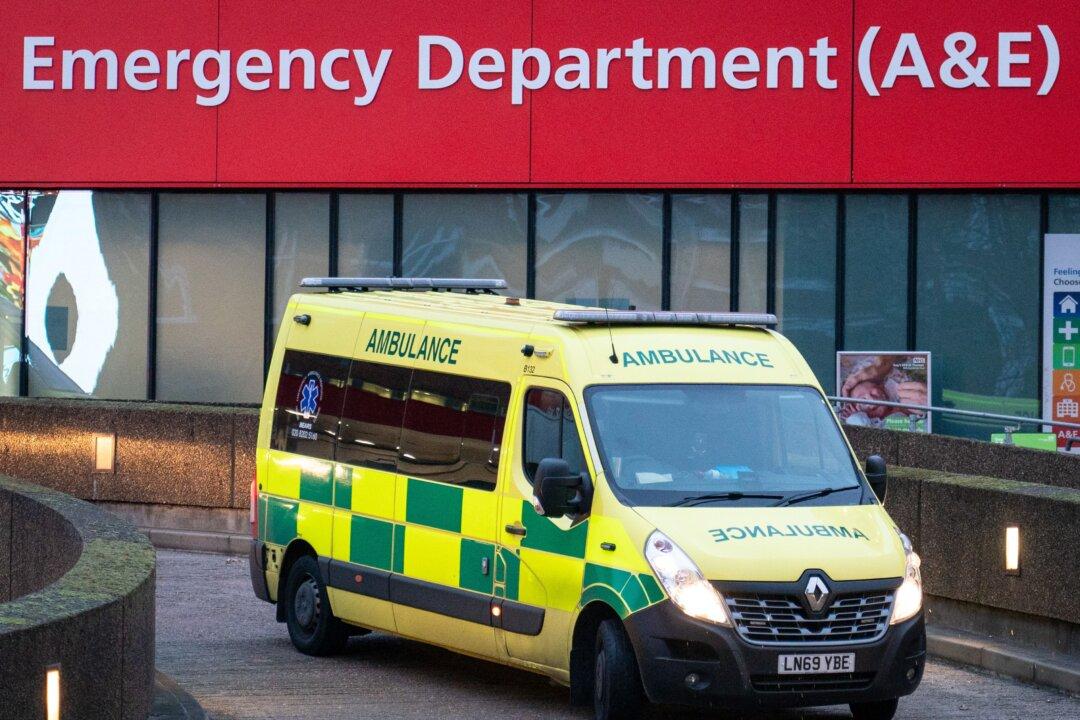The number of excess deaths in England and Wales spiked in the second week in January, reaching the highest level since the second wave of COVID-19 deaths, the latest data show.
According to provisional figures published by the Office for National Statistics (ONS) on Tuesday, 17,381 deaths were registered in England and Wales in the week ending Jan. 13, some 2,837, or 19.5 percent higher than the five-year average of the same week.





